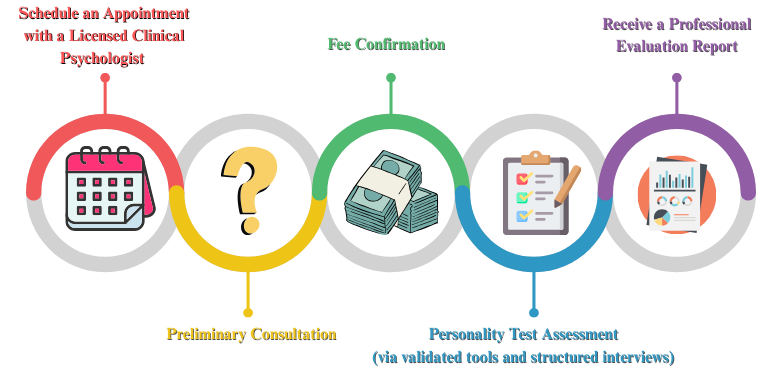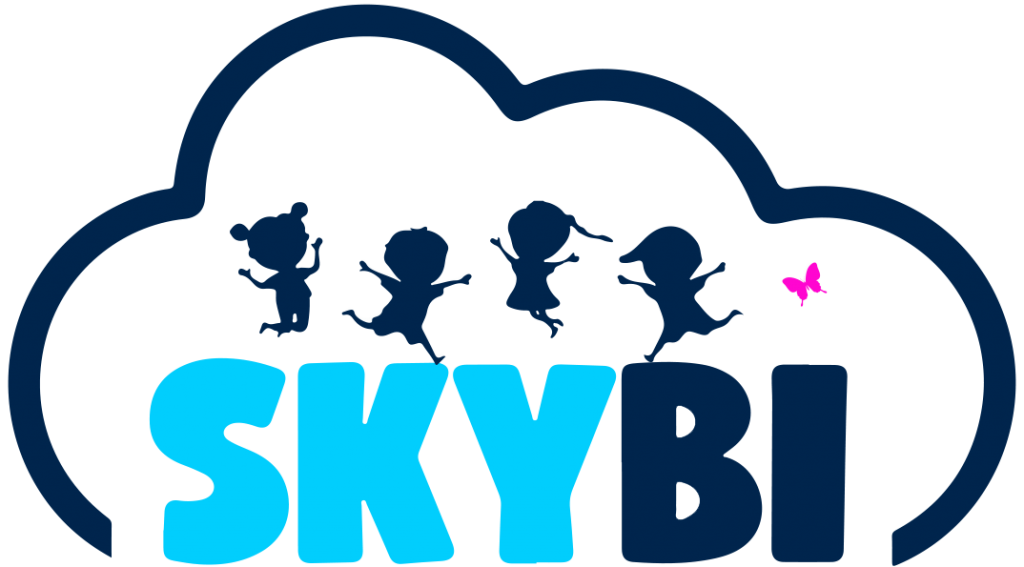13-9, 2 Rio Tower, Persiaran Rio, Bandar Puteri, 47100 Puchong, Selangor, Malaysia.
Cluster B: Personality Disorders
Personality Trait Assessment
Dramatic, Emotional, or Erratic Patterns
Many people search for a Personality Test Assessment to understand their personality patterns. In clinical psychology,
Cluster B are often described as the “dramatic, emotional, or erratic” group—marked by emotional intensity, impulsivity, and strong relational dynamics.
These traits can show up in different ways: some bring charisma, passion, and creativity, while others lead to instability, conflict, or difficulties in self-control. Recognising them early helps individuals preserve their strengths and reduce distress in daily life, relationships, and work.
Confidential • Licensed Psychologist
The Four Types of Cluster B Traits
 Main Features:
Main Features:
- Emotional instability and rapid mood swings
- Intense fear of abandonment
- Patterns of unstable but passionate relationships
Strengths and Challenges Across Life Domains:
- Intimate relationships: Deeply loyal and intense bonds; but fear of rejection may lead to conflict, break-ups, or “push-pull” dynamics.
- Social relationships: Empathetic and caring; yet mood swings and sensitivity may overwhelm friendships.
- Work/Studies: Creative and energetic; but impulsivity or stress may affect consistency.
- Self-perception: Feels emotions very strongly; may struggle with identity confusion or low self-worth.

Main Features:
- Strong need for admiration or recognition
- Tendency to focus on personal success or status
- Difficulty tolerating criticism
Strengths and Challenges Across Life Domains:
- Intimate relationships: Can be charming, ambitious partners; but may struggle with empathy and equality in relationships.
- Social relationships: Confident and motivating; may alienate others through arrogance or self-focus.
- Work/Studies: Driven to succeed and achieve high standards; sensitive to perceived slights or failure.
- Self-perception: Sees self as capable and unique; self-esteem may secretly depend on external validation.
Main Features:
- High expressiveness, dramatic emotions
- Strong need for attention and approval
- Easily influenced by others
Strengths and Challenges Across Life Domains:
- Intimate relationships: Enthusiastic and lively partners; but may feel unfulfilled without constant reassurance.
- Social relationships: Entertaining, charismatic, and engaging; friendships may feel shallow or one-sided.
- Work/Studies: Thrive in performance or people-focused roles; may struggle with structure or detail work.
- Self-perception: Sees self as lively and engaging; may feel empty or overlooked if not noticed.
 Main Features:
Main Features:
- Disregard for rules or social norms
- Impulsivity and risk-taking
- Difficulty with empathy or remorse
Strengths and Challenges Across Life Domains:
- Intimate relationships: Independent, bold, and risk-tolerant; but may disregard commitments or partners’ needs.
- Social relationships: Fearless, adventurous; but may exploit or harm trust with others.
- Work/Studies: Energetic and risk-embracing; may clash with authority or rules.
- Self-perception: Sees self as strong and resilient; others may view them as reckless or uncaring.
Why Seek an Assessment?
Cluster B traits can bring creativity, passion, and boldness, but when intense, they often create stress in relationships, unstable work patterns, or personal distress.
👉 A professional assessment helps you:
✅ Distinguish between different Cluster B trait patterns
✅ Recognise strengths as well as problem areas
✅ Learn skills for emotional regulation and boundaries
✅ Support loved ones in understanding these dynamics
Personality Test Assessment and Professional Tools
Many people look for a Personality Test Assessment online. In clinical practice, licensed psychologists use validated tools such as:
- MMPI (Minnesota Multiphasic Personality Inventory)
- SCID-II (Structured Clinical Interview for DSM Disorders)
These tools—combined with detailed interviews and clinical expertise—provide a diagnostic evaluation you can trust. A Personality Test Assessment in this context is not an online quiz, but a professional process that clarifies personality traits for treatment, support, and growth.
Avoiding Labels, Encouraging Growth
Assessment is not about putting you in a box. It’s about:
- Increasing self-awareness
- Reducing stigma and misconceptions
- Finding practical ways to live, work, and relate more effectively
Labels can harm, but avoiding help out of fear of labels can delay growth. Our team sees themselves as companions in your journey, supporting you toward balance and healthier relationships.
How a clinical personality assessment works?

Note: The assessment process usually involves: a 60-minute intake session, a 45–60 minute testing session (e.g., MMPI), and a 30–45 minute feedback session. These may be completed in one extended visit or spread across two sessions, depending on your comfort.
FAQs
Yes. Our Personality Test Assessment is conducted using validated clinical tools such as the MMPI (Minnesota Multiphasic Personality Inventory) and structured clinical interviews (e.g., SCID-II). This process is administered by licensed clinical psychologists and is designed for diagnostic purposes.
Only with your explicit consent. By default, your results are private.
Discuss it with a clinician. Assessment is iterative, collaborative, and aimed at fit and function—not fixed identity.
Anyone who resonates with Cluster B descriptions or whose relationships/work are being affected by similar patterns.




